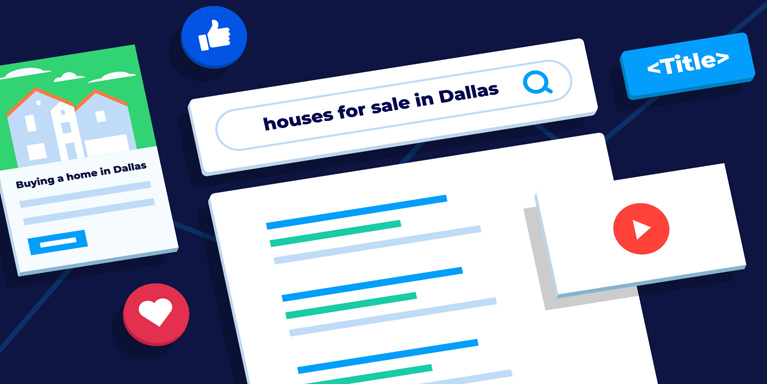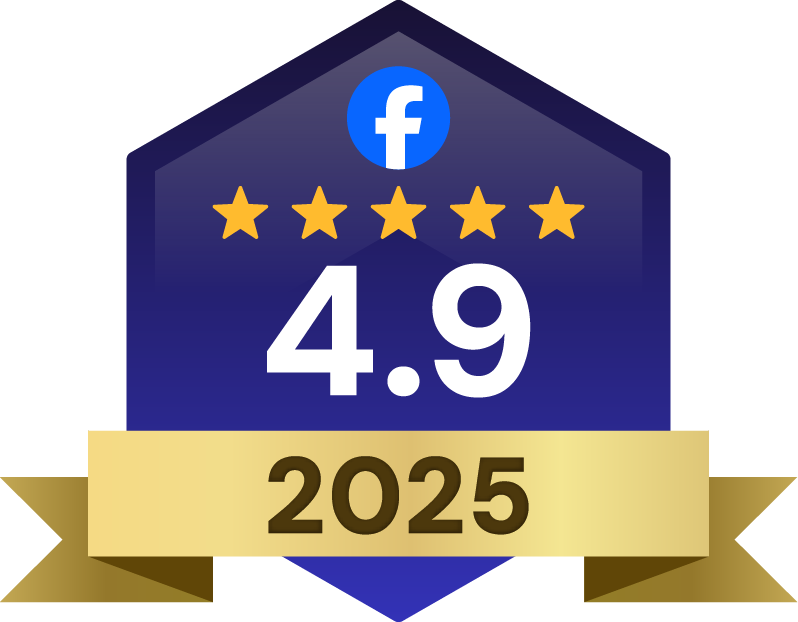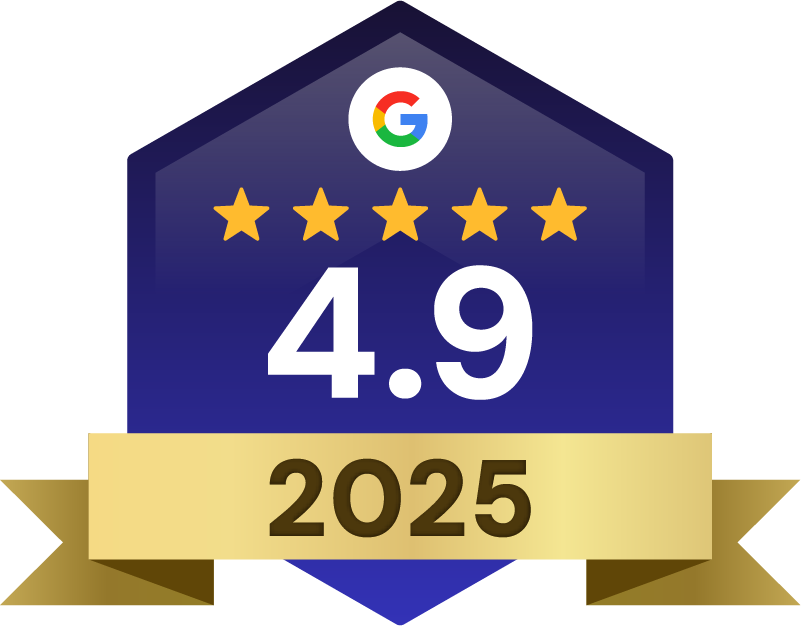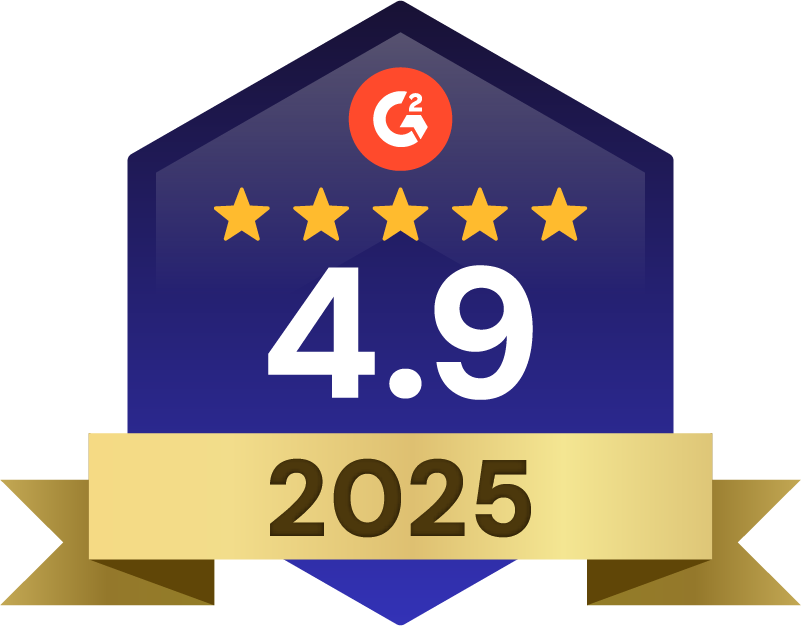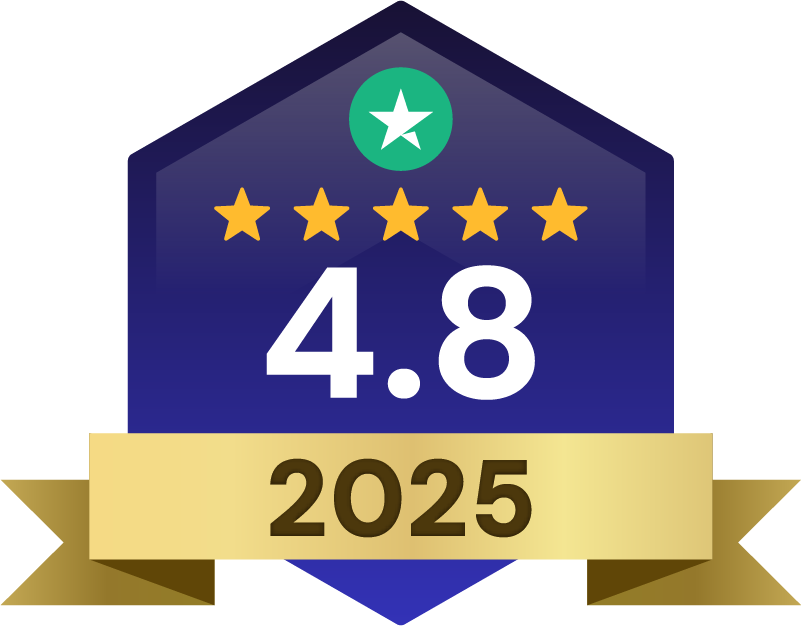In this article, we'll explain in plain English what exactly SEO is, how it improves your ranking in search engines, and why you should not ignore it.
Content Marketing Industry Insights
We often talk about SEO, and about how it can help you significantly expand your real estate business. And while we’ve often talked about why you need to pay attention to it, we’ve never really dug deep into how SEO works, and why there are some approaches to it that work and some don’t.
In today’s article, we’ll take a closer look into this topic, and explain it in simple, down-to-earth terms.

What is SEO
If you were to look up Search Engine Optimization (SEO) in a dictionary, the definition would be something like “the process of improving the quality and quantity of website traffic to a website or webpage from search engines.”
And while that definition is technically correct, it’s too clinical and it doesn’t really tell you much about how it works, what can it do for you, and why should you care.
So a better definition would be “the process of making your website and digital content more visible to search engines. That way, your website will get more high-value traffic, especially from your target audience.”
Why exactly would you want to optimize your website for search engines? Because search engines are the bridge between your content and website and your prospects.
A home buyer will most likely start his search by typing specific terms on a search engine like “3 bedroom home for sale in my area, or “how to become a homeowner.”
Home sellers will probably start comparing commission rates, recently sold homes in their area, and client testimonials for real estate agents.
All of these searches come from people that are pretty close to making a real estate financial decision and thus could be extremely valuable to you. Knowing that these people are out there, your goal then becomes doing whatever you can to capture this traffic, and have it go to your website, instead of your competitors.

How Do Search Engines Work?
We won’t go into exact detail as to how search engines work, since that’s way beyond the scope of this article. In addition, the exact details of how the search algorithms of leading search engines such as Google are trade secrets. But we will do a top-down, big-picture rundown on how they work.
The purpose of search engines is to help their users to find the information they are looking for. This is easier said than done since the internet is astronomical in size, and parsing search queries is a pretty massive programming challenge.
Companies that develop search engines have an economic incentive to produce high-quality search engines that provide the best possible searching experience for their users. That’s because the more people choose to use a particular search engine, the more they can monetize it by means of advertising and premium services.
In order to do the incredibly massive task of going through the billions and billions of websites all over the world and figuring out what each page is all about, search engines deploy software robots called crawlers. Crawlers scan webpage after webpage and use artificial intelligence to determine and record what each page is about.
By indexing all of these billions of pages, the search engine can then quickly find the information that a user wants to find.
Of course, search engines don’t treat each page they index the same. They consider some pages to be more authoritative than others (i.e. government sites, well-established websites, websites from industry leaders, etc.) and prioritize these pages on their search engine results pages (SERPS).
Beyond these, there are thousands of factors that a search engine uses to prioritize a page on their SERPS. Some are beyond your control, and some you can DO something about.
And when you understand those factors that you can control, you’ll be able to modify your website and the content you produce to make it more visible and more authoritative to search engines.
This is what SEO is all about.
Click the button below to learn more about pricing.
Factors That Impact SEO
Keywords
When it comes to search engines, a keyword is any question, words, and phrases you type into a search bar. They typically look something like:
“homes for sale in Tampa”, “best realtor in Colorado”, “2 bedroom home under 300,000.”
Search engines take these queries and compare them to the pages they indexed. If a page mentions “homes for sale in Tampa”, the search engine considers it to be relevant, and compares it to other pages that also mention “homes for sale in Tampa.” The search engine algorithm then ranks those pages, and presents them to the user in the order it determines to be the most relevant to the reader.
Knowing this, you can create a piece of content aimed at ranking well for a specific keyword. So if you wish to rank well for the keyphrase “homes for sale in Tampa”, you could write an article about the top 10 listings in Tampa, or a deep dive into the listings you have in the city, or how many homes have been sold in Tampa over the last decade, etc.
Regardless of the topic you choose, as long as you cover “homes for sale in Tampa” in a way that would appeal to someone googling that keyword, your article will be noticed by the search algorithm.
But just because it’s noticed by the algorithm, it doesn’t mean it will rank well. First of all, your article won’t be written in a vacuum. It will compete with other articles that are trying to rank for the same keywords.
Second, it’s not enough to just mention the keywords over and over in the article. Search engine algorithms are a lot smarter now. Your article needs to be well written, and genuinely useful to readers.
Third, the stiffer the competition for a particular keyword, the more difficult it will be for your article to rank well. It’s one of the reasons why it’s so difficult to rank for short, 1-3 word-long keywords such as “real estate,” “Florida realtor”, “homes for sale.”
The good news is that the longer a keyword is, the less competition you need to deal with, and the easier it is to create content that ranks well for it.
And the even better news? The longer a query is on a search engine, the closer its user is to make a final purchase decision.
For example, a person searching for a “2 bedroom home for sale in Tampa” is far more likely to be ready to purchase a home than someone just googling “homes for sale”.
On-Page Factors
Beyond content, keywords, and readability, search engines also consider a number of factors about your website that you DO have complete control over. These include (but are not limited to):
Title Tag – The title tag, as its name suggests, is the title that would appear for your article on a SERP. Your title tag also helps inform the search engine of what your page is all about. That’s why it’s important that you think carefully about the title you choose, and preferably include your chosen keyword. Your title tag should be short, and not exceed 70 characters.
Meta Description – The meta description is the description you see below the title tag on a SERP. Just like the title tag, the meta description gives additional information to the search engine about what’s in the article. It also helps human readers get a preview of what the article is about, and whether it’s what they’re looking for or not.
Again, like the title tag, the meta description should include your keywords in an organic way.
Subheadings – The main purpose of subheadings in an article is to separate the article into sections, and improve readability. They also make it easier for readers to go back to the article and find a section they wish to re-read. The same can be said about subheadings in a webpage.
But beyond helping readers find what they’re looking for more quickly, they also help search engines understand your content, and better index your content.
H1, H2, and H3 tags serve as subheadings and help you organize your content. H1 tags should be reserved for the title and only used sparingly and for the most important sub-heading of an article. H2 and H3 tags should be used for the rest of your subheadings.
Internal Links – Internal links are links you create to other web pages in your website, usually because that other page explains something in more detail. Not only do internal links help keep visitors in your webpage longer, but they also help search engines understand your website better and improve your SEO.
Image Description And Alt tags – Whenever you use any images on a webpage, you have the option to add an image description and an Alt Tag. The image description lets the search engine know what the picture is about, without having to use image recognition. The alt tag serves as an image placeholder that describes the image if it can’t load for some reason.
Both of them give you an opportunity to include your target keyword and help improve your SEO.
Image Optimization – The faster a webpage loads, the more favorably it will be ranked by search engines. One of the easiest ways to make sure a web page loads as quickly as possible is to optimize your images for the web. That means keeping their file size only as large as they need to be.
Here at AgentFire, we try to keep all of our images at around 100kb in size, saved as jpegs, and under 730 pixels wide. This helps us have a site that loads quickly on both desktop computers and mobile devices.
Optimize your pages for mobile – The majority of home buyers start their home search on their phones. That’s why it’s absolutely essential that your website is optimized for mobile.
The good news is that optimizing your website for mobile is easier than ever.

Off-page Factors
Though you don’t have direct control over these off-page factors, you do have ways to influence them in your favor.
Practices that exploit oversights and vulnerabilities of search engine algorithms are called “black hat” tactics. This term comes from “black hat hackers”, the so-called bad guys in the information technology world. On the other hand, “white hat” tactics are those that use legitimate and search engine-approved methods.
Trust – Trust is, of course, the most important currency of any real estate agent. But in this particular case, what we mean by trust is how trustworthy your website is deemed to be by search engines.
One way they do so is by gauging how many authoritative websites link to your content.
Many years ago, search engines would place a high value on the number of links going to your website, regardless of where they came from. The assumption was that the more backlinks a certain page had, the more likely it was a good piece of content. Unfortunately, less than scrupulous individuals quickly realized that this could be exploited in their favor, and engaged in shady practices in order to game the algorithm in their favor.
Search engine developers addressed this vulnerability and modified their algorithm so that it places a higher value on links that come from reputable sites. This includes domains such as realtor.com, government websites, well-established and popular blogs, university websites, and reputable news sites.
How can you use this information to your advantage?
First of all, it doesn’t pay to try to game the algorithm. You may be able to get some quick results now from exploiting certain vulnerabilities, but these are quickly addressed and fixed.
Instead, strive to gain links from authoritative websites by:
Building relationships – Reach out to influencers, thought leaders, and local movers and shakers that are involved in real estate in some way. Let them know about a piece of content you’ve just created that you sincerely believe will benefit their audience. Encourage them to link to it, but don’t be forceful. Just like prospecting, link building takes time and effort, but sooner or later, it pays off.
And as the amount of content you create and your perceived authority as the go-to real estate expert in your area grows, you won’t have to do link building as often. It will just happen organically.
Leveraging Social media – Likes and shares of a specific piece of content you produce help drive more traffic your way. And when influencers and high-profile industry members share your content to their own audiences, that will translate into higher quality traffic your way. Search engines pay attention to this and end up ranking your content higher.
Conclusion
SEO is a huge topic, and it’s impossible to cover everything about it in a single article. The great news is that you don’t need to be an absolute SEO expert to benefit from it. If you’re pretty busy closing deals, you should definitely consider using an SEO expert for your website, and spend your energy on what you do best.
But if you’re a new real estate agent, and hiring assistants isn’t an option yet, you can take some of the tips we mentioned in this article and use them to improve your website’s SEO yourself.
If you want more in-depth articles, tactics, strategies, and advice – subscribe to our newsletter, The Spark. And if you want to dominate your hyperlocal real estate market, check out AgentFire’s AgentFire Sites, #1 rated for several years in a row.


